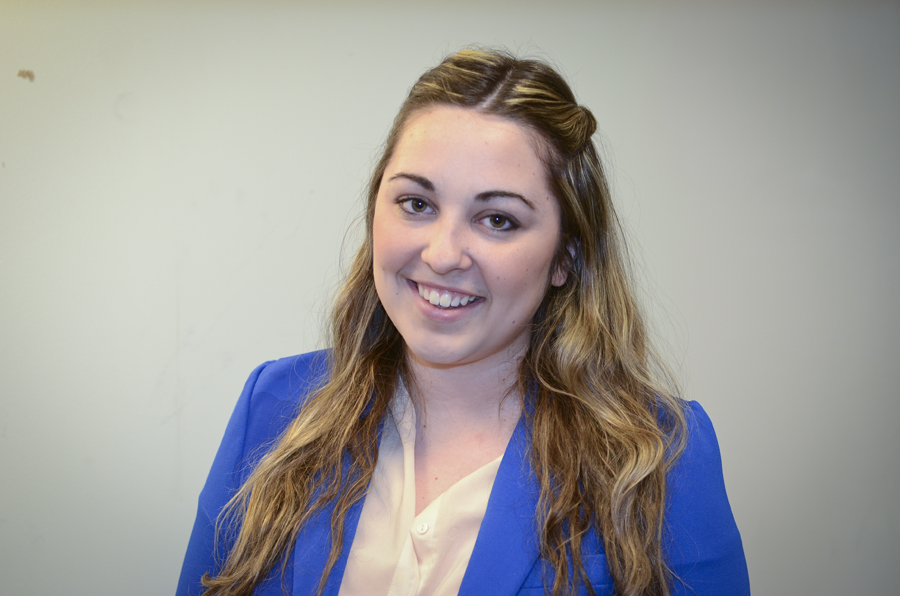McGill Tribune: Why are you a good candidate for this position?
Julia Kryluk: I work extensively with the current VP Internal, and I was on the Student Programming Network Committee, which is the main committee that the VP Internal oversees, so it plans SSMU’s events. And so I planned all the events for last year and this year. Also I’ve done a lot of events for the Science [faculty]. I was a Frosh coordinator this past summer. I was also the Science Carnival coordinator last January. I also sat as the Science councillor coordinator, so I have a lot of experience within SSMU … I’ve seen all the exec reports, what it’s really like to be an internal. And also working with all the events, having coordinated them before gave me firsthand experience of actually doing these events, as opposed to only observational experience.
Within my platform, I talk about more than planning events. Within my platform, I talk about incorporating, accountability, sustainability, and equity, which I think is something that has really been lacking. Especially with equity … sometimes the average student does not know what is an equitable costume, or if this or that event is making someone uncomfortable.
Also part of my platform is integrating all ages events because each year there’s many students that can’t participate because they are underage … So I introduced the idea of an all-ages Frosh—at the same time as faculty frosh—run by SSMU that would alleviate the pressure of faculties to decide to plan all these different events where there’s no drinking on top of their other events. I really don’t think that this would deter [students] from going to Rad Frosh or Fish Frosh because usually those also fill up very quickly. Here are a lot of students in residence that just don’t do Frosh because they feel there’s no place for them.
MT: You mentioned that equity is a big part of your platform. What specific ideas do you have to promote it on campus?
JK: Definitely educating students about what is equity and what is an equitable event. That includes, first and foremost, educating events leaders and coordinators because they are the ones who interact one on one with the students … they are the point of contact with the students … What matters is to make the average student familiar with that term.
MT: You mentioned the idea of having an all-ages Frosh. This year, SSMU incorporated Orientation Week, which had a lot of non-drinking events. Do you see this Frosh as being part of this week or completely different?
JK: Orientation Week was a great step forward … my idea follows that stream of thought and expands it even bigger. So Faculty Frosh is three days … but about 20 per cent of undergrads are under 18, and so [the idea is that] when the student comes to the registration table for [their faculty], we offer him this other program that is happening at the same time. They will have their own leaders and their own activities for [the same] three days. They will be doing fun activities that everyone can enjoy and feel safe doing. Things like going to the Biodome, or hiking up to a mountain, or making a bus trip to somewhere, doing a laser tag game, or playing a game of survivor. It gives them something fun to do and if you present it in a fun way a lot of students will be interested.
MT: During the debates, you discusse instituting a calendar of events. How are you planning to move this forward?
JK: The first step would be deciding the format … deciding the information we need from science, arts, clubs, and athletics and asking them “do you want to be included in this? …and then, there’s someone already at SSMU who does things like these and who works on the interactive calendar for Frosh where students can pick the events that they want to go to. Even getting it forward … getting most of the events done by September and then moving forward from that [would be great]. Often students don’t know what’s going on. [They] cannot find it in the listserv, or the website had no information …putting it all in one place, and making it inclusive and accessible [would make everything easier].
MT: In what way is this better than the listservs? Because at least in the listservs you get information delivered to your inbox—with the calendar students, will have to go and find it.
JK: The listervs are a good tool but also people don’t always read them. Also, especially this year they aren’t really regular … I think that having a second tool is very useful, and where everything is in one place, can also become a primary tool in the future.
MT: Is there anything else that you would like our readers to know about your platform?
JK: I definitely think that you need to look at the facts, to see who has direct experience as opposed to observational experience. It’s great to see someone do things, but actually doing it is quite a different thing. My vision for more inclusive and equitable events is a very exciting thing. I just want people to have good spirit and bring a sense of community.
Click here to see the Tribune’s endorsements.









